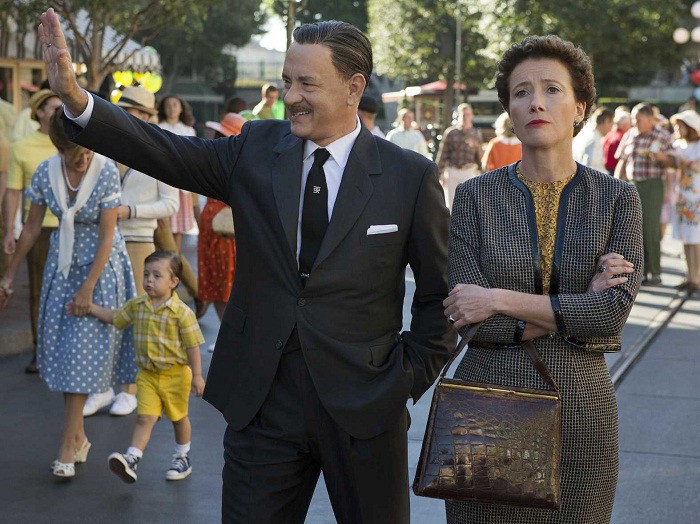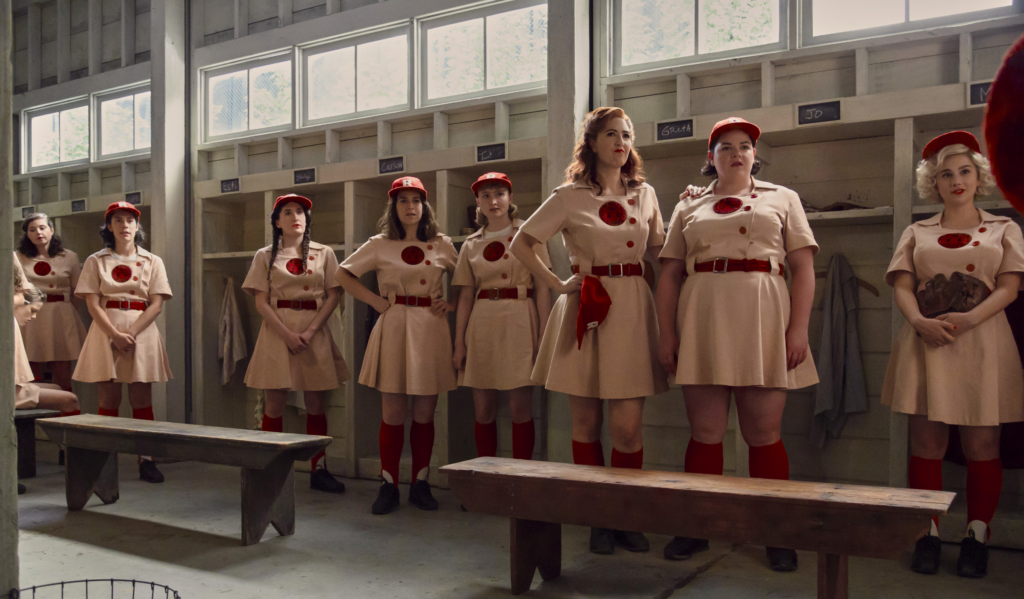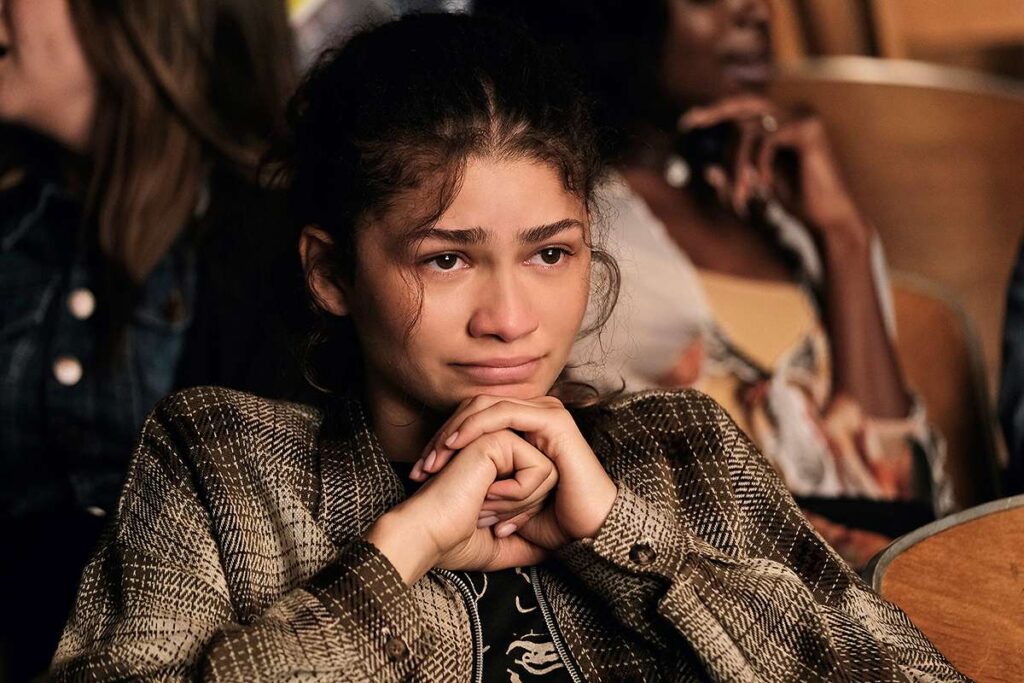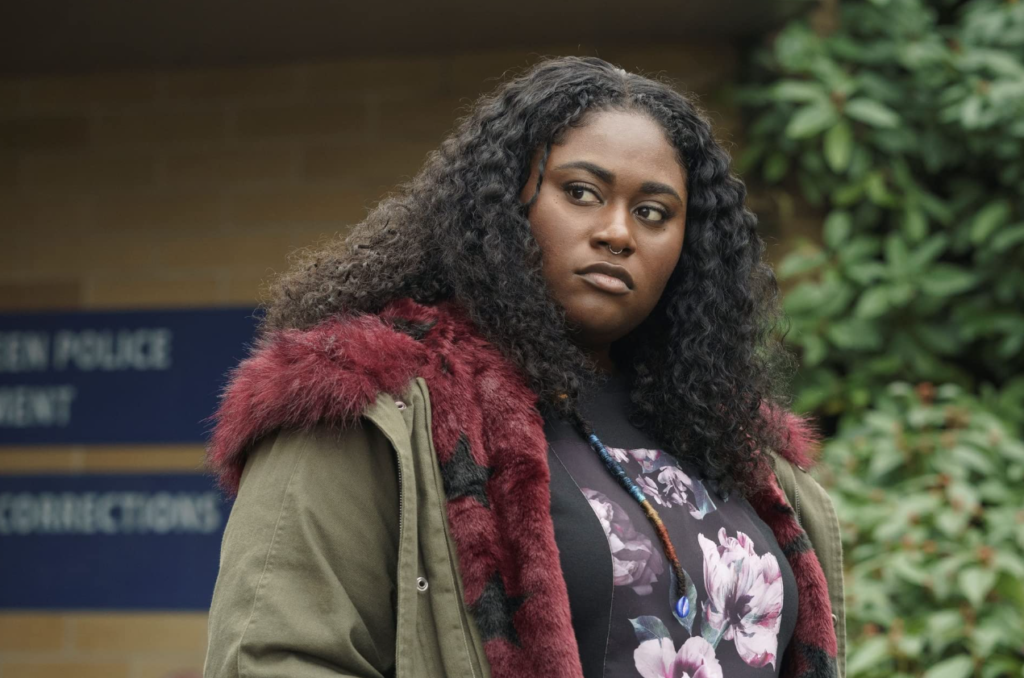It’s time to get real about the Oscar race.
Most of the films in play for a coveted spot on the best-picture roster have some element of truth to them.
Today marks the arrival of Captain Phillips, a whale of a fact-based tale about one man’s life-threatening 2009 encounter with a band of Somali
pirates starring Tom Hanks. Next week welcomes The Fifth Estate, this year’s answer to The Social Network featuring Benedict Cumberbatch
as Wikileaks founder Julian Assange, and 12 Years a Slave, based on a 19th-century first-hand account of how a free black man was taken into
bondage.
Then the deluge begins. Dallas Buyers Club, Philomena, The Wolf of Wall Street (if Martin Scorsese gets it down to size in
time), Mandela: Long Walk to Freedom, American Hustle, The Monuments Men, Saving Mr. Banks, Lone Survivor. That’s in addition to Fruitvale Station, Lee Daniels’ The Butler, and Rush already in theaters. Even films that are fictional, such as Gravity or All Is Lost, feel like they are reflecting actual events.
Of course, biopics have a long tradition of making the cut in the best-picture race — the first to be nominated was 1928’s The Patriot, a
now-lost silent film about Emperor Paul I of Russia. In fact, in the modern era of the Oscars, you have to go all the way back to 1992 — when Unforgiven, The Crying Game, A Few Good Men, Scent of a Woman and Howards End were the contenders for Oscar’s top prize — to find a year without a
best-picture candidate that was based at least partially on reality.
Since the beginning of the 21st century, fact-based performances have dominated the winners list in the lead acting categories, especially for women. Since
2000, 9 out of 13 of the winning female roles were based on an actual person. That’s opposed to the 1990s, when the award was granted to only two actresses
whose characters were actual people — Susan Sarandon in Dead Man Walking and Hilary Swank in Boys Don’t Cry.
Among male leads, 7 out of 13 winners were based on real people since 2000, as opposed to four in the ‘90s.
Of course, doing a movie about a famous figure is just one more way to brand a film and draw a built-in audience. But there is more to it than that. One
could point to the rise of reality-based TV beginning with Survivor in 2000 as contributing to Hollywood’s co-opting of the form. Or the growth of
24-hour news stations that often turn every ongoing story into a case of heroes and villains.
Bill Condon, the director of The Fifth Estate whose previous biopics include Kinsey and Gods and Monsters, has his own theory:
Starting with video cameras, we are now a generation of people who have been documented from the moment they were born. And now they are in their 30s and
everyone feels as if they starred in his or her own movie for their whole lives. So it feels as if, unless it is connected to someone real, it doesn’t feel
real. It helps to make the emotional connection.
But there is more to it than that. Since 9/11, we have grown accustomed to gathering round our national hearth — the TV set — and witnessing actual events
unfold and news break before our very eyes. If there’s a mass shooting or a bomb goes off in a major city, we feel compelled to watch the aftermath of
these horrible, often violent events, seeking explanations for what can’t be easily explained. History also moves quicker than ever in the Internet age. We
are too impatient to wait for the textbook versions.
Movie makers have taken notice and given rise to a kind of re-enactment cinema that emulates the observation of real-life events as they unfold. And some
of the most influential movies of our time fall into this docudrama category. You can point to the domination of 1997’s Titanic, which re-created
the 1912 sinking of the ocean liner. It went on to win 11 Academy Awards and became the top-grossing film of all time up until that point.
Other nominated re-enactments of recent vintage include Letters From Iwo Jima, Munich and 127 Hours — which is part of a subgenre
of survivalist biopics with their races against time and, often, the elements. Last year, three such films — Lincoln, Zero Dark Thirty
and Argo, which would claim the statuette — dominated the race. Steven Spielberg’s account of our 16th president might have looked on the surface
like a typical biopic. But the script focused on a single landmark event: Lincoln’s struggle to convince Congress to pass the 13th amendment and abolish
slavery.
In fact, traditional biopics that typically follow much of a person’s rise to fame and fortune have not been in favor since 2004, when Ray and The Aviator were up for best picture.
Since the intent of The Big O is to follow the awards season from a woman’s perspective, it is time to ask: What does this all mean for the actress
categories this year as well as for movies that revolve around a female character?
Unfortunately, the opportunities just aren’t as rich for women as they are for men. In fact, women are mostly left on the sideline or are shown merely as love
interests in Captain Phillips and The Fifth Estate.
That the success of Zero Dark Thirty, which not only epitomized the best of re-enactment cinema with its climatic account of the capture of Osama
bin Laden, but was directed by and centered around a woman, was undercut by controversy over its depiction of torture as an interrogation device does not
help, either.
Instead, with have two real-life fairy tales involving princesses. Diana, with Naomi Watts as England’s tragic royal, has already been slammed by
critics on its home turf, and Nicole Kidman’s channeling of Grace Kelly in Grace of Monaco has been moved to next year.
That leaves Philomena, a more traditional biopic on the surface with Judi Dench’s octogenarian searching for the son she gave up for a adoption as
a unmarried teen. That director Stephen Frears goes beyond the call of duty and makes a statement about the corrupt practices of the Catholic Church along with
celebrating the bravery of a senior citizen when she confronts some ugly truths is to be cheered.
Alas, Saving Mr. Banks — directed by John Lee Hancock, whose The Blind Side led Sandra Bullock to Oscar victory — is the one great hope
for a female-centric version of a re-enactment. In this case, Emma Thompson is front and center as P.L. Travers, the prickly British author of Mary
Poppins. While her troubled childhood is shown in flashbacks, the movie primarily centers around her feud with Walt Disney (Hanks again, doing reality
double duty this year) over his studio’s big-screen fantasy about her magical nanny.
In a recent interview, Thompson assured me that this will be a relationship between a man and a woman that has seldom been seen before, a psychological
clash of wills. One can only hope it will prove to be practically perfect in every way.







